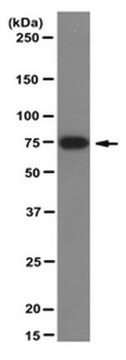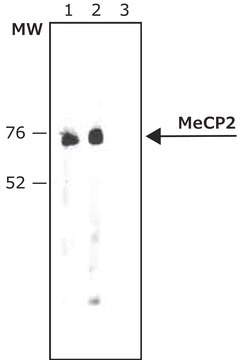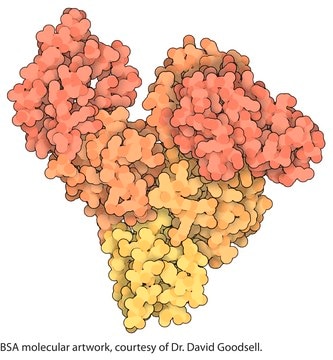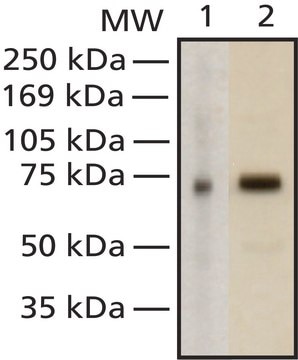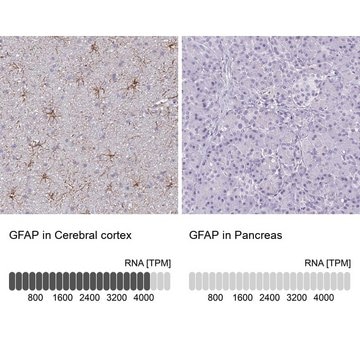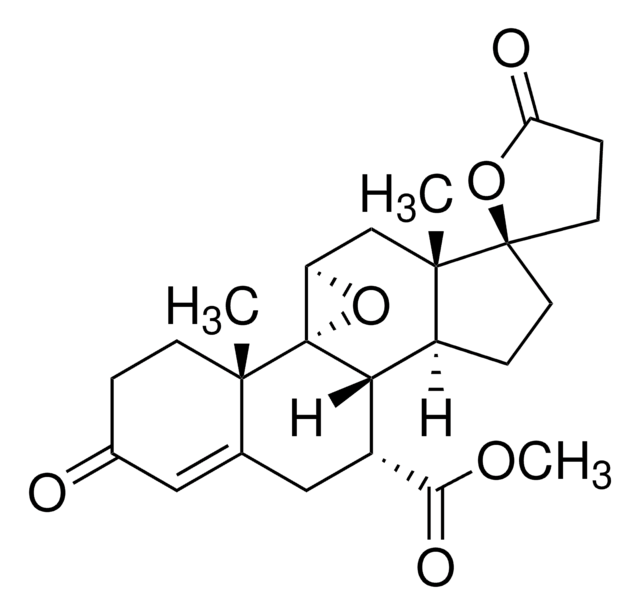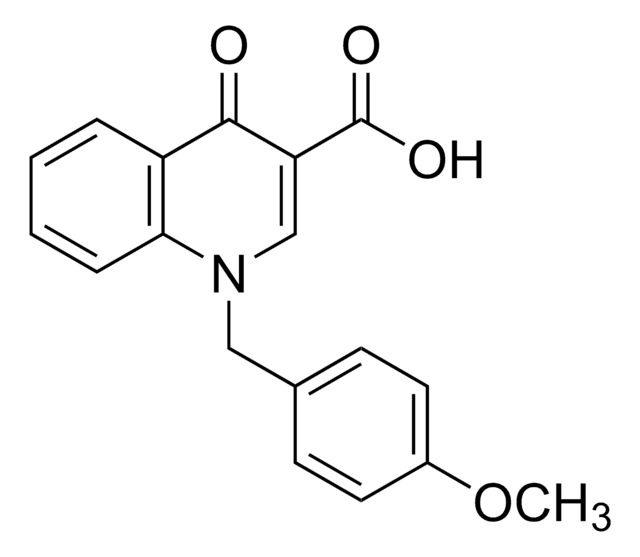ABN1728
Anti-MeCP2
from rabbit, purified by affinity chromatography
Synonym(s):
Methyl-CpG-binding protein 2, MeCp-2 protein, MeCp2
About This Item
Recommended Products
biological source
rabbit
Quality Level
antibody form
affinity isolated antibody
antibody product type
primary antibodies
clone
polyclonal
purified by
affinity chromatography
species reactivity
human, mouse
species reactivity (predicted by homology)
rat (based on 100% sequence homology), bovine (based on 100% sequence homology), rhesus macaque (based on 100% sequence homology)
technique(s)
immunofluorescence: suitable
western blot: suitable
NCBI accession no.
UniProt accession no.
shipped in
ambient
target post-translational modification
unmodified
Gene Information
human ... MECP2(4204)
General description
Specificity
Immunogen
Application
Quality
Western Blotting Analysis: 0.5 µg/mL of this antibody detected MeCp2 in 10 µg of mouse brain nuclear extract.
Target description
Physical form
Other Notes
Not finding the right product?
Try our Product Selector Tool.
recommended
wgk_germany
WGK 2
flash_point_f
Not applicable
flash_point_c
Not applicable
Certificates of Analysis (COA)
Search for Certificates of Analysis (COA) by entering the products Lot/Batch Number. Lot and Batch Numbers can be found on a product’s label following the words ‘Lot’ or ‘Batch’.
Already Own This Product?
Find documentation for the products that you have recently purchased in the Document Library.
Our team of scientists has experience in all areas of research including Life Science, Material Science, Chemical Synthesis, Chromatography, Analytical and many others.
Contact Technical Service